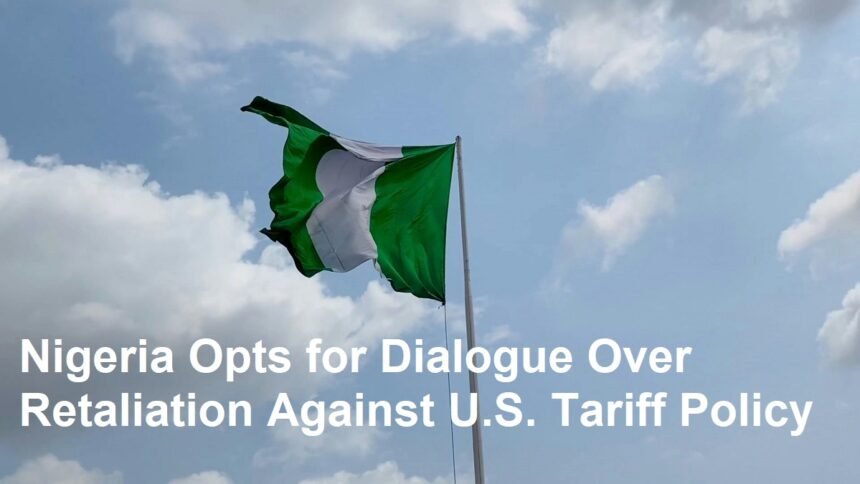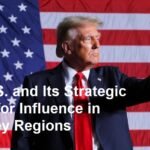In a measured and strategic response, Nigerian authorities have announced that the country will not retaliate against the United States’ recently imposed 14 percent tariff, choosing instead to engage in discussions with U.S. representatives and the World Trade Organization (WTO). The decision reflects Nigeria’s commitment to a diplomatic resolution and a stable trade relationship amidst growing global economic uncertainties.
The U.S. tariff, seen by many as a protective measure intended to shield American industries, has sparked varied reactions among its trade partners. For Nigeria—a major emerging market and a key player in Africa’s economy—the imposition of the tariff has presented a challenging dilemma. While some experts had anticipated a tit-for-tat approach, the Nigerian government’s clear stance against retaliation demonstrates a preference for dialogue over disruptive economic measures.
Nigerian officials explained that the decision was made after extensive consultations among senior government officials, trade experts, and economic advisors. “We have carefully analyzed the implications of a direct countermeasure, and our priority is to maintain productive trade relations and to avoid any actions that might escalate tensions further,” a government spokesperson noted. The spokesperson further added that Nigeria is preparing to engage in high-level discussions with U.S. and WTO representatives to address concerns and seek a mutually beneficial resolution.
Abuja’s planned discussions with its U.S. counterpart and the WTO underscore Nigeria’s broader approach to international trade disputes. The Nigerian government is determined to work within established international frameworks to address the challenges posed by unilateral policy shifts. The decision to involve the WTO signals the government’s intent to seek support from a multilateral institution that is tasked with ensuring fair trade practices and resolving disputes arising from such policies.
Analysts have widely interpreted Nigeria’s stance as a pragmatic choice aimed at long-term economic stability. The Nigerian economy, which is closely linked to global oil markets and international trade, stands to lose significantly if a trade war were to erupt. A retaliatory measure could disrupt supply chains, increase import costs, and trigger a series of negative consequences for Nigerian consumers and businesses alike. By opting for dialogue, Nigeria is signaling its commitment to a balanced and constructive engagement on the international stage.
Economic experts point out that such crises often test the resilience of bilateral and multilateral relationships. The U.S. tariff has been part of a broader trend in recent years, where countries have increasingly turned to protectionist policies in order to support domestic industries. However, these policies can create ripple effects across global markets, particularly impacting emerging economies like Nigeria. The Nigerian government’s decision to avoid an immediate counter-tariff measure is seen as a smart move that prioritizes long-term economic relationships over short-term gains.
In parallel, the upcoming discussions are expected to address a range of issues beyond the tariff itself. Nigerian representatives are anticipated to highlight concerns over trade imbalances and the necessity for equitable market access for Nigerian products. They are also expected to call for transparency and adherence to global trade rules as defined by the WTO. By stressing these points, Abuja aims to foster a more balanced trade environment that benefits both Nigerian exporters and U.S. importers.
U.S. officials have responded cautiously to Nigeria’s announcement. While they maintain that the tariff was necessary to protect critical sectors of the U.S. economy, they also indicated a willingness to engage in constructive dialogue. This mutual openness to discussion suggests that both sides recognize the potentially destabilizing effects of a trade confrontation. Stakeholders from both countries see value in resolving differences through dialogue rather than escalating economic conflict.
In conclusion, Nigeria’s decision not to retaliate against the 14 percent U.S. tariff reflects a strategic commitment to diplomacy, economic stability, and adherence to international trade norms. As discussions proceed with the U.S. and the WTO, many will be watching closely to see if these talks can pave the way for a more cooperative framework in addressing the challenges of modern international trade.












